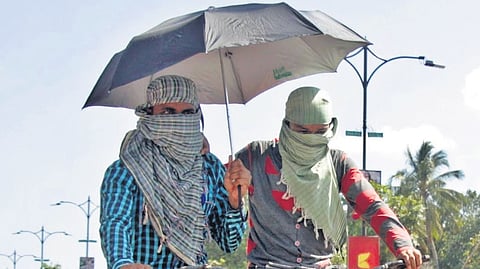

THIRUVANANTHAPURAM: The rise in temperature has seen a dip in the quality of drinking water and a resultant spike in waterborne illnesses. This underscores the heightened risk of consuming contaminated water.
There have been nearly 570 confirmed cases of hepatitis A, which is directly linked to the ingestion of water contaminated with fecal matter, reported in the state this year alone, besides incidence of acute diarrhoeal diseases and typhoid.
Infections caused by rotavirus, norovirus, salmonella, and shigella are likely to escalate, warn health experts.
There is growing concern about the potential outbreak of more severe waterborne diseases, such as cholera, if significant efforts aren’t made to ensure access to safe drinking water and raise awareness of associated risks.
“Infections such as cholera, typhoid, and hepatitis A and B often originate from contaminated water sources, particularly when water is scarce,” said Dr Purushothaman Kuzhikkathukandiyil, professor of paediatrics at Malappuram MES Medical College Hospital.
“Hepatitis A provides partial immunity. As a result, it is children who are mostly affected in an outbreak, as adults have some level of immunity,” said Dr Anish T S, associate professor, community medicine, Manjeri Government Medical College Hospital.
It is just a matter of time before there are outbreaks of other diseases, that do not offer immunity, in areas considered risky, he added.
According to him, there are social, behavioural and cultural aspects that increase the risk of a region during water shortage.
“Contamination of surface water is rampant. Fecal matter, with viral and bacterial load, is higher in water bodies during the summer. But areas that do not focus on drinking boiled water are prone to waterborne diseases,” said Dr Anish.
Experts point out that cases are reported repeatedly from similar locations and tackling infections would require disease mapping. According to them, local bodies have a larger role to play, compared to the health department, in controlling waterborne diseases.
The practice of drinking unsafe water from roadside shops and public gatherings is considered a major risk. Health Minister Veena George has called for increased monitoring of food and water safety, particularly the ice used in juice shops, to mitigate the risk of waterborne diseases.
Earlier, the state government had issued an advisory for the people, urging them to stay hydrated. George warned people of heatstroke and other diseases during the summer season. “One should drink plenty of fluids and avoid strenuous outdoor activities during the hottest times of the day,” the minister. The government also urged the people to wear loose clothes and eat more fruits.
Potential outbreak
There is growing concern about the potential outbreak of more severe waterborne diseases, such as cholera, if significant efforts aren’t made to ensure access to safe drinking water and raise awareness of associated risks. Infections caused by rotavirus, norovirus, salmonella, and shigella are likely to escalate, warn health experts. There have been nearly 570 confirmed cases of hepatitis A, which is directly linked to the ingestion of water contaminated with fecal matter